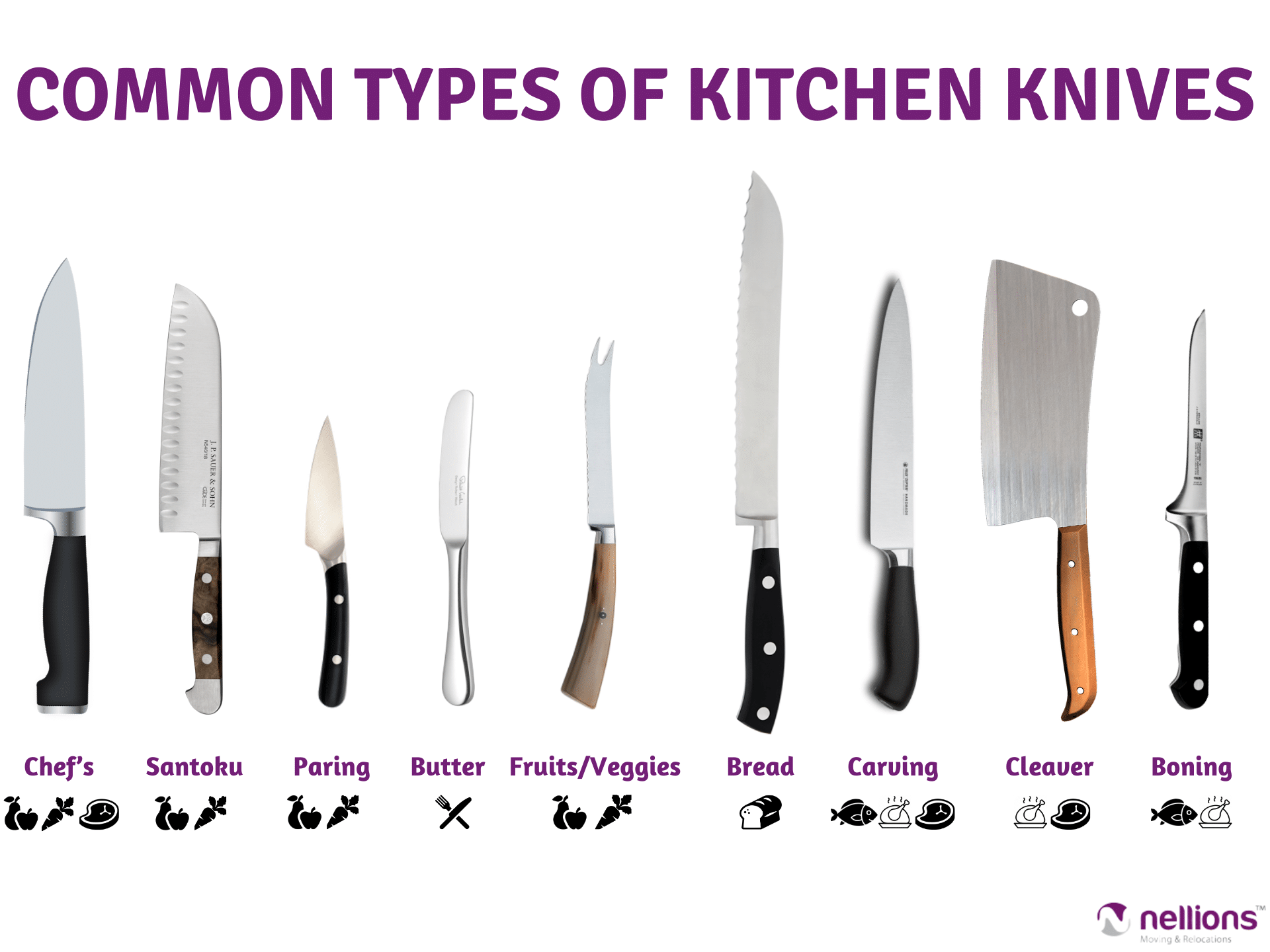Knives come in many different variants, and each one has its advantages in certain areas. In this installment of our Know Your Stuff series, we will explore the most common types of knives found in the kitchen, and elaborate a little on their purposes. We will also look at the best ways to store knives, as well as touch on safety and precautionary measure to be taken while moving knives.
TYPES OF KNIVES

Chef’s Knife:
The chameleon of knives has a broad blade that curves toward the blade tip to allow the knife to rock for mincing. It is versatile and can be used for everything, from dicing and chopping to slicing fruits and vegetables.

Paring Knife:
This is a small knife that can get into small crevices and allows more control than a larger knife.

Santoku:
Is the Japanese version of the Chef’s knife. It is perfectly balanced, plus shorter and with a smaller rocker than the chef’s knife. The name Santoku translates into “three virtues”, which in the kitchen refer to slicing, dicing and mincing.
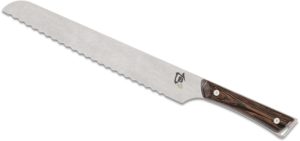
Bread Knife:
a long and thick-bladed knife with a serrated edge. It can easily cut through the hardest and thickest of crusts without flattening the bread.

Cleaver:
A thick, heavy and wide-bladed knife. It can force its way through meat and poultry bones, and is ideal for chopping meat and crushing garlic.

Carving Knife:
Has a long, thin and narrow blade with a sharp tip. It allows for smooth cutting of meat using a saw-like motion.
Boning Knife:
is super-thin and slightly smaller than a carving knife, giving greater precision, which is perfect for removing bones from meat, poultry and fish.

Citrus Knife:
a short knife with a serrated edge and a forked tip. The edge makes it easy to cut through fruits and veggies with tough skins, while the forked edge aids in transferring pieces through cutlery.

Table Knife:
This moderately sharp knife is mostly used to cut cooked food. It has a serrated blade and a blunt end and is often used as a butter knife too.
HOW TO MOVE KNIVES
Moving knives can be quite tricky, and if proper precautions are not taken they can damage other items or even harm the people moving them. The first step is to sort all the knives by size before wrapping: table knives, citrus and paring knives go into one pile, all the meat knives and bread knives go into another, while chef’s knives and cleavers go into independent piles. The grouping of the knives should be such that each group is made of knives that are very close in terms of size and weight.
While packing, this is also a nice opportunity to declutter. Discard all the old knives that you haven’t used in years — everyone has more than a few. Take advantage of the move to get rid of the junk that you won’t be using: new house, new life.
When wrapping, you need to use at least 3 layers of wrapping paper per stack of knives to ensure that they don’t pierce the wrapping. Lining the moving box with bubble wrap also helps to provide extra cushioning for the knives. Kitchen towels and old clothes also work where bubble wrap is unavailable.
HOW DO WE STORE KNIVES?
This video explains how to go about storing knives while keeping safety in mind as a primary consideration:
There are essentially four basic ways to store your kitchen knives:
- You can mount them on a wall with a magnetic strip. It provides a quick way to store and retrieve your knives quickly and saves on counter space but is potentially disastrous in terms of child safety.
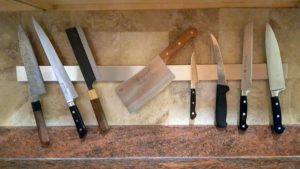
- Store them on the counter in a block or dock
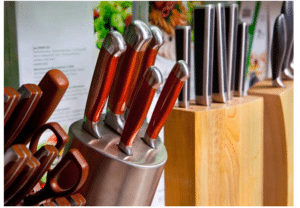
- Under a cabinet, if space is really tight, or
- in a drawer dock.
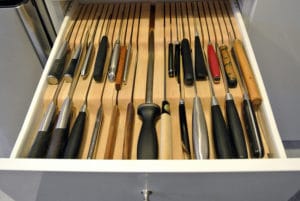
……there’s also a fifth method, and that’s the chef’s roll.
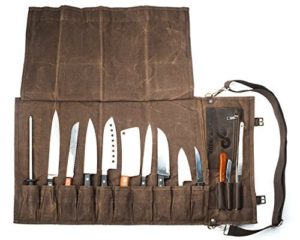
ARE YOU MOVING? Talk to the professionals and enjoy the Nellions Fine Moving experience.




